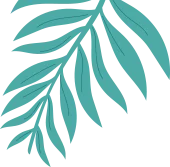Torry App

While the surface web hosts mainstream social media and discussion forums, the dark web provides alternative platforms that prioritize anonymity, evade censorship, or serve niche communities. Some of these platforms operate as forums for privacy advocates and cybersecurity discussions, while others cater to controversial or illicit activities. Additionally, some mainstream social media platforms offer .onion mirrors to enable access in regions with restricted internet freedom.
Below is a breakdown of some of the most notable dark web discussion forums, imageboards, and social media sites that either exist exclusively in the dark web or maintain a presence there.
Dark Web Imageboards & Discussion Forums
8chan (Defunct Imageboard, Later Rebranded as 8kun)
Originally an anonymous imageboard that prided itself on free speech and minimal moderation, 8chan became infamous for hosting extremist content. It was repeatedly taken offline due to controversies and its association with violent incidents before rebranding as 8kun, which continues to operate.
Dread (Dark Web’s Reddit Alternative)
Dread is one of the most popular discussion forums on the dark web, often compared to Reddit due to its similar structure. It serves as a hub for darknet communities discussing cybersecurity, privacy, hacking, and marketplace reviews. Unlike mainstream forums, Dread prioritizes anonymity and uncensored discussions.
The Hub (Tor-Based Dark Web Forum)
A well-known dark web community forum focused on privacy, security, and underground markets. It provides a space for discussions on digital anonymity, cryptocurrency exchanges, and darknet trade, though access is often restricted to vetted users.
HackBB (Defunct Hacking Forum)
HackBB was once a prominent forum catering to hackers, cybercriminals, and security researchers. It facilitated discussions on exploits, malware, and fraud before being dismantled by law enforcement.
Tor Carding Forum (Defunct Fraud-Focused Forum)
This dark web platform specialized in credit card fraud and identity theft, allowing users to trade stolen data and discuss fraudulent techniques. Authorities eventually took it down as part of anti-cybercrime operations.
Dark0de (Defunct Cybercrime Marketplace & Forum)
One of the most notorious cybercrime marketplaces, Dark0de served as a hub for hacking services, malware trade, and stolen data exchanges. In 2015, an international law enforcement effort led to its takedown.
Russian Anonymous Marketplace (RAMP) (Defunct Russian-Language Forum & Marketplace)
RAMP was a Russian-language dark web forum where users engaged in discussions about cybercrime, drug trade, and financial fraud. It functioned both as a marketplace and a forum before being shut down by authorities.
Mainstream Social Media Platforms with Dark Web Accessibility
Some mainstream platforms recognize the need for privacy and censorship resistance, offering .onion versions of their services to support users in restrictive regions.
Facebook (.Onion Address for Privacy & Censorship Resistance)
Facebook offers a Tor-accessible version of its platform to allow users in heavily censored regions to access social media securely. This onion service ensures that Facebook remains available even in countries that restrict access to the platform.
Reddit (Mainstream Forum with Dark Web Discussions)
While Reddit itself is a surface web platform, many of its communities discuss cybersecurity, privacy tools, and dark web-related topics. It serves as an information hub for users interested in encryption, Tor, and darknet marketplaces.
Twitter (Used for Activism & Censorship Resistance via Tor)
Although Twitter is not a dark web service, many activists, journalists, and privacy advocates use Tor to access the platform, especially in countries with strict censorship laws. Its real-time nature makes it a valuable tool for anonymous communication and news dissemination.
Defunct or Controversial Forums
Kiwifarms (Infamous Forum Known for Cyberbullying & Doxxing)
Kiwifarms gained notoriety as an online forum linked to harassment campaigns, doxxing, and cyberbullying. It has faced multiple takedowns due to legal actions and hosting service bans, yet it has resurfaced several times through alternative hosting solutions.

